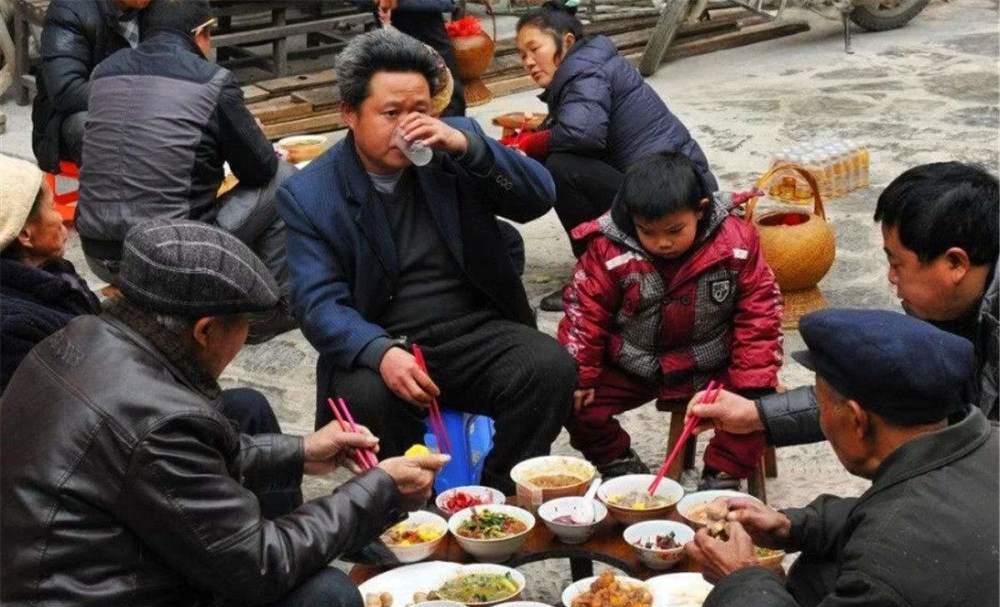Chinese culture is broad and profound, long-standing, all-encompassing, one of the branches is the colloquialisms, the colloquialisms can be said to be "easy to understand", but the "concise and concise" words, many of the sayings are in the anecdote, after generation after generation, word of mouth, therefore, the colloquialisms are very grounded.
The ancients had a lot of attention to age, from swaddling, hair year, total horn, to flower nails, ancient rarity, elderly, different ages have different titles.
The saying I am talking about today is about the age of people, called: "There are two hurdles in life, and the nine dark ones are in the sky", and what does the "two hurdles" mentioned in it refer to? What is "Dark Nine"? To this day, does this proverb still work?

The "two hurdles" in this saying actually refer to two kinds of age, seventy-three years old and eighty-four years old.
These two ages look unremarkable, is there anything unique about it? As we all know, in ancient times, people respected Confucianism, which was called orthodox thought, which was affirmed by successive dynasties and dynasties, and its influence was also extremely far-reaching.
Confucianism is also known as "Kong-Mencius Thought", Kong refers to Confucius, and Meng refers to Mencius.
Historically, both Confucius and Mencius were long-lived old men, with Confucius's life expectancy being seventy-three years old and Mencius's life expectancy being eighty-four years old.
It is believed that the sages of antiquity only lived to be seventy-three or eighty-four years old, and if people reach this age, they should pay attention.
Of course, there is also a saying that "people are not sages", ordinary people reach these two ages, that is, the barrier, crossed the past, the blessing will exceed the sages, it is more important to be content and happy, enjoy the old age, and spend the rest of their lives well.
So, what is the "Dark Nine"?
The ancients were very sensitive to numbers, and in the ancient books of the pre-Qin Dynasty such as "Zhou Yi" and "Luohe Books", the application of numbers was extremely exquisite.
Nine in Zhou Yi, is considered to be the number of "polar yang", zhou yi has six yao, with "nine" to represent "yang", Zhou Yi's first gua qiangua, liu yao are "nine", of which, "nine six" for the dragon has regrets, even the ancient emperors, do not dare to call themselves "nine six", but called "nine five supreme"
At the same time, nine is often used in the counting of the daily life of the ancients, the most typical of which is "counting nine" and "nine nine plum blossom cold elimination chart"
If the number "nine" is used for age, it is considered "uncontrollable", so the "dark nine" referred to here refers to the age of "multiples of nine", and specifically refers to those after the age of sixty: sixty-three, seventy-two and eighty-one.
Whether it is the "two hurdles" mentioned above (seventy-three years old and eighty-four years old) or the "dark nine" (sixty-three, seventy and eighty-one years old), they all belonged to the age of old age in ancient times. The ancient standard of living and medical level is not high, life is seventy years old, and it is not simple to achieve longevity.
When people are old, their bodies gradually decline, and manpower cannot be reversed, but can only delay the process of decline.
Due to the limited level of productivity and medical care in ancient times, when people reach old age, they have stepped into a hurdle, and they need to pay special attention to take care of their bodies.
With the development of the times, the progress of society, the improvement of the scientific level, people's living conditions, medical conditions have become better, people's life expectancy has also been long, "seventy ancient rarity" has now been useless.
So does this proverb still work? The saying often has a warning effect, this saying is to warn people, people should serve the elderly in old age, and pay more attention to protecting the body and maintaining physical and mental health. From this point of view, the core spirit of this saying is still used.
What do you think about that? Comments are welcome.